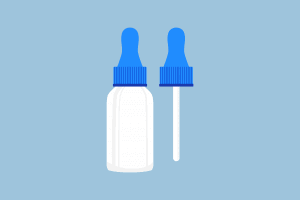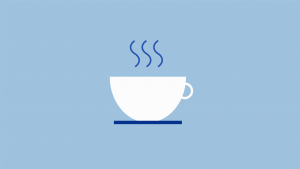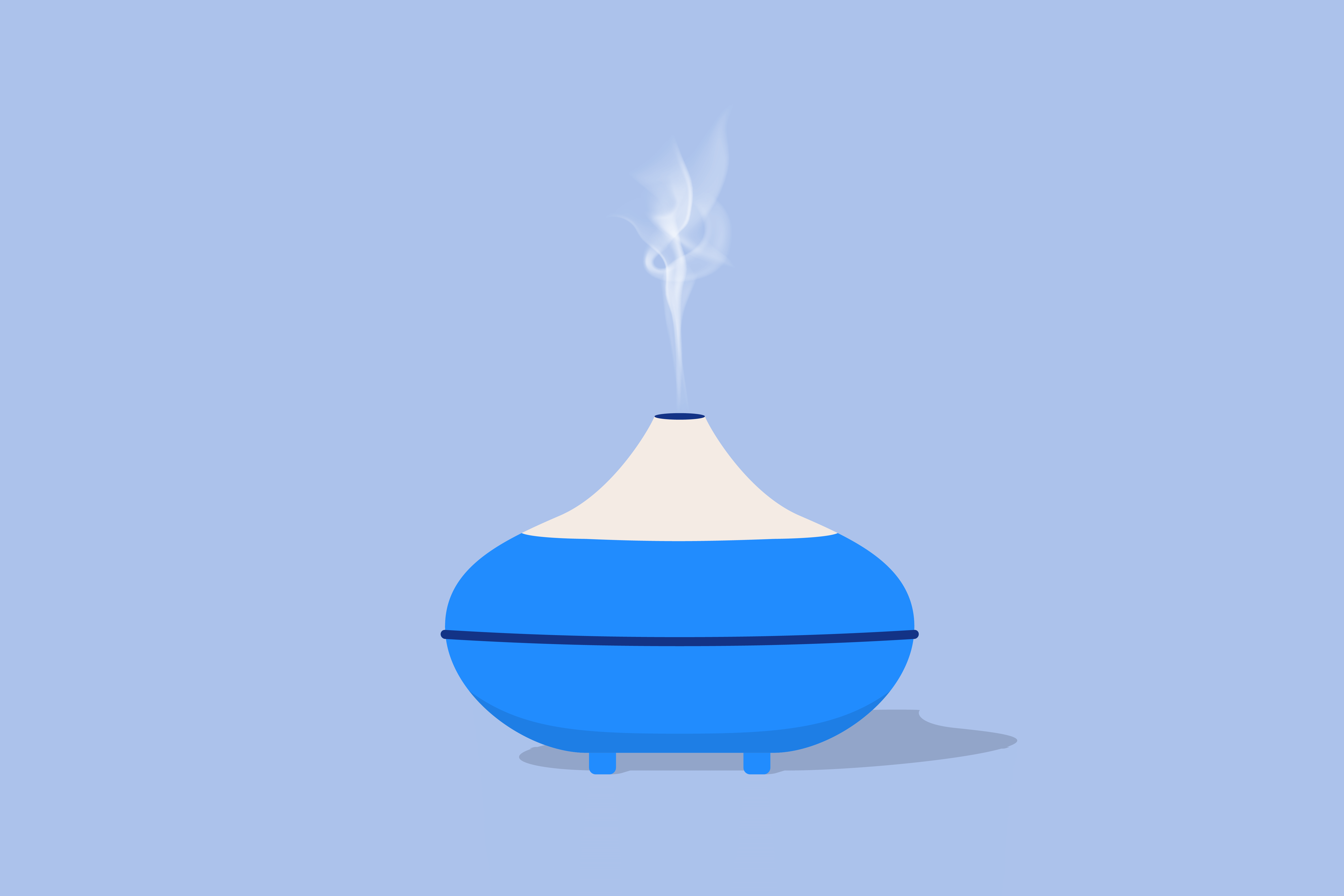Key Takeaways
The relationship between smell and sleep is growing as research reveals the profound impact scents can have on our sleep quality and overall well-being. Aromatherapy, using essential oils for sleep from plants, has emerged as a popular method for enhancing sleep. Certain fragrances have been found to promote relaxation and improve the ease of falling asleep, while others can increase alertness in the morning.
This article explores the science behind how smell affects sleep and offers tips for incorporating scents into your bedtime routine for better sleep.
The Relationship Between Smell and Sleep
The relationship between smell and sleep is a topic of interest due to the bidirectional nature of their connection. The olfactory system, responsible for our sense of smell, is closely linked to the brain regions involved in the science of how sleep works such as sleep regulation and emotional processing.
Numerous studies Verified Source National Library of Medicine (NIH) World’s largest medical library, making biomedical data and information more accessible. View source have demonstrated Verified Source National Library of Medicine (NIH) World’s largest medical library, making biomedical data and information more accessible. View source that smell affects sleep Verified Source National Library of Medicine (NIH) World’s largest medical library, making biomedical data and information more accessible. View source in various ways, influencing the time it takes to fall asleep and the overall sleep quality.
“Odors can affect basic physiology like autonomic tone, which may explain the effect of smell on sleep and arousal,” says Dr. Nayantara Santhi. “There is some evidence in the research literature for the effect of odors on sleep latency, duration and quality. Further evidence comes from findings showing that some odors can reduce stress or enhance relaxation thereby modulating sleep.”
One way smell affects sleep is through the use of essential oils. Certain scents, such as lavender, chamomile, and valerian, have been shown to have calming and relaxing effects, promoting a good night’s sleep. These essential oils can be used in aromatherapy, where the scents are inhaled or applied topically to enhance sleep quality. For example, research has found that inhaling lavender oil Verified Source National Library of Medicine (NIH) World’s largest medical library, making biomedical data and information more accessible. View source before bedtime improves sleep efficiency and increases deep sleep.
Furthermore, odor exposure and perception during sleep can also influence sleep quality. Studies have shown Verified Source National Library of Medicine (NIH) World’s largest medical library, making biomedical data and information more accessible. View source that exposure to unpleasant odors during sleep can lead to a decrease in sleep quality and also awakening in some individuals. On the other hand, pleasant smells can positively impact sleep, promoting relaxation and more restful sleep.
In addition to its effect on sleep quality, smell can also influence sleep disorders. For example, individuals with insomnia may benefit from using certain scents, such as lavender or jasmine, to help them fall asleep more easily. Similarly, sleep apnea patients may benefit from using scents that promote nasal congestion relief, such as eucalyptus or peppermint.
Aromatherapy for Better Sleep
 Several essential oils can be used in aromatherapy to promote better sleep.
Aromatherapy is
Verified Source
National Library of Medicine (NIH)
World’s largest medical library, making biomedical data and information more accessible.
View source
a practice that utilizes the soothing scents of plants, specifically essential oils, to enhance sleep. Numerous studies have shown the positive effects of aromatherapy on sleep quality. One study
measured the sleep quality
Verified Source
National Library of Medicine (NIH)
World’s largest medical library, making biomedical data and information more accessible.
View source
of participants exposed to lavender essential oil compared to a control group. The results showed that the lavender group experienced deeper sleep and had lower blood pressure during sleep than the control group. Another study found that chamomile essential oil improved sleep efficiency and reduced participants’ time to fall asleep. These findings highlight the potential of essential oils in improving sleep.
Several essential oils can be used in aromatherapy to promote better sleep.
Aromatherapy is
Verified Source
National Library of Medicine (NIH)
World’s largest medical library, making biomedical data and information more accessible.
View source
a practice that utilizes the soothing scents of plants, specifically essential oils, to enhance sleep. Numerous studies have shown the positive effects of aromatherapy on sleep quality. One study
measured the sleep quality
Verified Source
National Library of Medicine (NIH)
World’s largest medical library, making biomedical data and information more accessible.
View source
of participants exposed to lavender essential oil compared to a control group. The results showed that the lavender group experienced deeper sleep and had lower blood pressure during sleep than the control group. Another study found that chamomile essential oil improved sleep efficiency and reduced participants’ time to fall asleep. These findings highlight the potential of essential oils in improving sleep.
Incorporating essential oils into your bedtime routine can help create a more restful sleep environment. Aromatherapy products, such as pillow sprays to sleep better or diffusers, can infuse your bedroom with pleasant scents, helping to create a calming atmosphere before sleep.
This can be particularly beneficial in masking unpleasant odors affecting sleep quality. Additionally, incorporating essential oils into your nighttime routine can help signal your body that it is time to relax and unwind, promoting restful sleep.
If you don’t want to breathe in a smell right on your pillow as you drift off to sleep, you might want to try and light a bedroom candle for sleep. Just make sure you put it out before you go to bed, as you don’t want to leave an unattended fire burning, even one so small.
It is important to note that aromatherapy should not replace other treatments for sleep disorders and that individual responses to scents may vary. However, incorporating the soothing scents of essential oils into your bedtime routine to sleep better at night may offer a natural and effective way to promote better sleep.
Scents for Wakefulness and Alertness
Certain scents can wake you up and increase alertness. Citrus scents like lemon or orange are known for their invigorating properties. Peppermint scent has been shown to improve cognitive performance and increase alertness. Let’s discuss the benefits of these scents and how they can be incorporated into our daily routines for enhanced wakefulness and alertness.
Coffee
 Frequently, smelling coffee has been found to enhance alertness, attention, and memory without consuming caffeine.
The olfactory stimuli of coffee
Verified Source
Harvard Health
Blog run by Harvard Medical School offering in-depth guides to better health and articles on medical breakthroughs.
View source
can have a powerful impact on the nervous system, promoting wakefulness and cognitive function.
Frequently, smelling coffee has been found to enhance alertness, attention, and memory without consuming caffeine.
The olfactory stimuli of coffee
Verified Source
Harvard Health
Blog run by Harvard Medical School offering in-depth guides to better health and articles on medical breakthroughs.
View source
can have a powerful impact on the nervous system, promoting wakefulness and cognitive function.
Here are three ways in which smelling coffee can affect sleep:
- Light sleep: Smelling coffee can help prevent falling into light sleep stages associated with dreaming, such as rapid eye movement (REM) sleep. This can result in less restful and uninterrupted sleep.
- Slow-wave sleep: Coffee’s aroma can also influence slow-wave sleep, the deepest and most rejuvenating stage of sleep. It can help impair a longer duration of slow-wave sleep, leading to less overall sleep quality.
- Pleasant odors: However, it is also possible for pleasant smell of coffee to create a positive association with bedtime routines. Incorporating coffee-scented products, such as body wash or linen sprays, into your nighttime routine can help create a relaxing and soothing environment for sleep.
Peppermint
How does the scent of peppermint contribute to wakefulness and alertness? Incorporating scents into our nighttime sleep routine has been shown to have various effects on our sleep quality and overall well-being. While scents like lavender oil promote relaxation and aid in falling asleep, certain scents, like peppermint, can contribute to wakefulness and alertness.
Studies have shown that olfactory stimulation Verified Source National Library of Medicine (NIH) World’s largest medical library, making biomedical data and information more accessible. View source through the scent of peppermint can improve relaxation in the brain.
However, it is important to note that the impact of scents on sleep can vary from person to person, so it is essential to find the scents that work best for you.
For example, a 2006 study Verified Source National Library of Medicine (NIH) World’s largest medical library, making biomedical data and information more accessible. View source found a link between how people perceived the smell of peppermint and their sleep. People who thought peppermint was very strong slept more and had more deep sleep than those who thought it was only moderately strong. People who felt stimulated by peppermint had more non-dreaming sleep and less dreaming sleep, while those who found it calming took longer to reach deep sleep.
Interestingly, peppermint didn’t directly affect the detailed sleep measurements when the way people perceived it wasn’t considered. The study also noticed differences between men and women. Peppermint increased deep sleep in women but not in men, and it made men more alert but didn’t have the same effect on women.
Citrus
 Incorporating scents like citrus into our daily routine can promote wakefulness and alertness. The
smell of citrus
Verified Source
National Library of Medicine (NIH)
World’s largest medical library, making biomedical data and information more accessible.
View source
has been shown to stimulate the central nervous system, increasing energy levels and improving cognitive performance.
Incorporating scents like citrus into our daily routine can promote wakefulness and alertness. The
smell of citrus
Verified Source
National Library of Medicine (NIH)
World’s largest medical library, making biomedical data and information more accessible.
View source
has been shown to stimulate the central nervous system, increasing energy levels and improving cognitive performance.
Here are two ways in which citrus scents can positively impact alertness:
- Sensory Stimulation: Citrus scents provide sensory stimulation, which can help to keep the mind active and alert. This can be especially beneficial in the morning or when you need an extra energy boost.
- Higher Sleep Quality: Studies suggest incorporating odor cues like citrus scents into your bedtime routine can lead to higher sleep quality. The refreshing aroma of citrus can help create a soothing environment, making it easier to fall asleep and stay asleep throughout the night, making you more alert during the day.
Impact of Odor on Dreams and Morning Wakefulness
 Our sense of smell, known as the olfactory sense, plays a significant role in how our brains process information and emotions. Olfactory cues can trigger memories and emotions, making them powerful tools for affecting our dreams and overall sleep quality.
Our sense of smell, known as the olfactory sense, plays a significant role in how our brains process information and emotions. Olfactory cues can trigger memories and emotions, making them powerful tools for affecting our dreams and overall sleep quality.
Research suggests that certain smells can enhance slow-wave sleep. Verified Source National Library of Medicine (NIH) World’s largest medical library, making biomedical data and information more accessible. View source
A 2021 study Verified Source National Library of Medicine (NIH) World’s largest medical library, making biomedical data and information more accessible. View source looked at how smells during sleep might affect dreams and how we feel after waking up. They used pleasant (vanillin) and unpleasant (thioglycolic acid [TGA]) smells and compared them to no smell. They thought that the nice smell would make dreams and waking up feel better, while the bad smell would have the opposite effect.
They had 60 people participate, and the results showed a small effect on dream pleasantness based on how participants perceived the smell around them. If they mistakenly thought there was a smell when there wasn’t, their dreams were less pleasant. Although the smells had a small positive impact on how people felt after waking up, it wasn’t a big difference.
In simple terms, the study suggests that having smells around while you sleep probably won’t make a big positive difference in your dreams or how you feel when you wake up. More research is needed to understand this better.
In addition to its impact on sleep and lesser impact on dreams, smells can also contribute to a more refreshed state upon waking. Waking up feeling refreshed and rejuvenated is essential for cognitive performance and overall well-being.
Other scents, such as clary sage, have also positively affected sleep. Clary sage has been shown to have antidepressant effects and can help induce relaxation, making it a useful addition to a nighttime routine.
How Incorporating Scents into Your Bedtime Routine Aids Sleep
One effective way to enhance your bedtime routine or just a great DIY bedroom makeover idea is by incorporating scented candles, which can create a soothing and relaxing atmosphere in your bedroom. Using scents has been shown to promote relaxation, relieve stress, and improve sleep quality. Here are two ways that incorporating scents into your bedtime routine can benefit your sleep:
- Promotes relaxation: Certain scents, such as lavender and chamomile, have a calming effect on the body and mind. Inhaling these scents can help reduce anxiety and promote relaxation, making it easier to fall asleep.
- Enhances emotional response and memory: Research has shown that certain scents can positively impact emotional well-being and memory. Verified Source National Library of Medicine (NIH) World’s largest medical library, making biomedical data and information more accessible. View source For example, the scent of rosemary has been found to improve memory recall and promote feelings of alertness. Incorporating scents into your bedtime routine can improve your emotional response and potentially enhance your memory.
Incorporating scented candles into your bedtime routine can calm your mind and body, promoting relaxation, spur healthy sleeping habits, and improving sleep quality. By choosing scents known to have a calming effect, you can create a soothing atmosphere in your bedroom and enhance your overall sleep experience.
The Connection Between Smell and Sleep
Examining the impact of smell on sleep quality reveals the intricate relationship between olfactory stimuli and the body’s ability to achieve restorative rest. The olfactory system, responsible for our sense of smell, is closely linked to the limbic system, Verified Source National Library of Medicine (NIH) World’s largest medical library, making biomedical data and information more accessible. View source which regulates emotions, behaviors, and long-term memory. This connection between odor perception, smell, and sleep is significant, as research has shown that certain smells can profoundly affect our everyday lives and overall well-being.
Essential oils for sleep derived from various plants have gained popularity. Lavender and chamomile, for example, are known for their relaxing properties and have been used for centuries in aromatherapy to aid in stress relief and mood enhancement. These scents can promote relaxation and improve sleep quality.
Different scents have different effects on sleep. While lavender and chamomile are popular choices, other scents such as jasmine, cedar, and ylang-ylang have also been found to enhance sleep. Jasmine essential oil has been shown to improve sleep efficiency, Verified Source Research Gate Network service for scientific researchers that makes it easy for experts to find and share papers. View source while cedar extract helps with falling asleep more quickly during daytime naps. Ylang-ylang essential oil is associated with calmness and slowed reaction times, aiding sleep.
It is important to note that incorporating scents into your bedtime routine should not replace other treatments for sleep disorders. However, using essential oils or other scents can be a natural and effective way to improve sleep quality.
Creating a sleep-friendly environment and using high-quality, pure scents in moderation can enhance your sleep experience and wake up refreshed. The connection between smell and sleep is fascinating, and further research is needed to understand the potential benefits and mechanisms behind this relationship fully.
Scents That Help You Sleep
Certain scents have been found to help promote better sleep. Chamomile, rose, lavender, and jasmine are the scents that have a calming effect and aid in relaxation. Discussing the benefits and effects of these scents can provide valuable insights into incorporating them into a bedtime routine for improved sleep quality.
Chamomile
 The soothing scent of chamomile has been used for centuries to promote relaxation and improve sleep quality. Chamomile is one of the most popular essential oils for sleep due to its calming properties.
The soothing scent of chamomile has been used for centuries to promote relaxation and improve sleep quality. Chamomile is one of the most popular essential oils for sleep due to its calming properties.
A randomized controlled trial conducted on chamomile essential oil Verified Source National Library of Medicine (NIH) World’s largest medical library, making biomedical data and information more accessible. View source found that participants who inhaled the scent of chamomile experienced improved sleep quality compared to a control group. Just a few drops of chamomile oil were sufficient to produce these effects.
Rose
The scent of roses has been found to lower blood pressure and respiratory rate, Verified Source National Library of Medicine (NIH) World’s largest medical library, making biomedical data and information more accessible. View source making it easier to fall asleep. Aromatherapy is a popular practice that uses plant scents, specifically essential oils, to enhance sleep. The smell of roses, along with other scents such as lavender and chamomile, are known for their calming and relaxing effects, aiding in falling asleep faster and improving overall sleep quality.
These scents can be incorporated into your bedtime routine using essential oils, aroma diffusers, or even scented products like pillow sprays. However, it is important to note that aromatherapy should not replace other treatments for sleep disorders and should be used in moderation. Using scents as a natural sleep aid can be a valuable tool in creating the perfect sleep environment and promoting restful and rejuvenating sleep.
Lavender
 One popular scent associated with improved sleep is
lavender,
Verified Source
National Library of Medicine (NIH)
World’s largest medical library, making biomedical data and information more accessible.
View source
which has been found to reduce anxiety, stress, and pain by reducing heart rate.
One popular scent associated with improved sleep is
lavender,
Verified Source
National Library of Medicine (NIH)
World’s largest medical library, making biomedical data and information more accessible.
View source
which has been found to reduce anxiety, stress, and pain by reducing heart rate.
Lavender has a calming effect on the mind and body, making it an ideal scent to incorporate into your bedtime routine. The familiar odor of lavender has been shown to have a calming effect on the mind and body, leading to a more restful sleep.
Furthermore, results of a 2005 study Verified Source National Library of Medicine (NIH) World’s largest medical library, making biomedical data and information more accessible. View source showed that lavender oil increased the percentage of deep or slow-wave sleep (SWS) in both men and women. Additionally, participants reported feeling more energetic the morning after exposure to lavender, supporting the notion that the increased deep sleep was restorative. Lavender also had other sleep-related effects, such as increasing stage 2 (light) sleep and decreasing rapid-eye movement (REM) sleep and the time it took to wake up after initially falling asleep (wake after sleep onset latency) in women. Conversely, men experienced different effects, suggesting gender-dependent responses to lavender.
Here are two ways to incorporate lavender into your sleep routine:
- Use lavender essential oil: Add a few drops to an aroma diffuser, mix it with carrier oil, and apply it to your pulse points before bed.
- Use a lavender-scented pillow spray: Spritz your pillow and bedding with a lavender-scented spray to create a relaxing atmosphere and promote better sleep.
- Applying lavender-scented lotion: You can make sweet smells part of your nighttime skin routine.
Jasmine
Frequently used in aromatherapy, jasmine Verified Source Research Gate Network service for scientific researchers that makes it easy for experts to find and share papers. View source essential oil has improved sleep efficiency, allowing individuals to spend more time in restful slumber. This fragrant oil is derived from the jasmine plant and has a calming and soothing effect on the mind and body.
Jasmine essential oil can help reduce anxiety and promote relaxation, making it an ideal choice for those struggling with sleep disturbances. It has also been found to have sedative properties, helping to induce deep relaxation and promote a more restful sleep. Incorporating jasmine essential oil into your bedtime routine can enhance your sleep quality and allow you to wake up feeling refreshed and rejuvenated.
Cedar
Cedar essential oil is known for its calming and grounding properties, promoting a sense of relaxation and stress relief. Inhaling its warm, woody aroma can help soothe the mind, reduce tension, and create a peaceful atmosphere, making it a popular choice for relaxation purposes.
A 2018 study Verified Source National Library of Medicine (NIH) World’s largest medical library, making biomedical data and information more accessible. View source explored the potential benefits of essential oil derived from Japanese cedar wood, focusing on female participants who engaged in monotonous work. Salivary stress markers were measured to assess endocrinological responses, and participants’ perceptions of the experimental room odors and psychological states were evaluated through questionnaires.
The findings indicated that olfactory stimulation with the volatile compounds of Japanese cedar wood essential oil had a positive impact on mood states. Additionally, it was observed that this stimulation may temporarily reduce sympathetic nervous activity, which is associated with the body’s stress response. The study suggests that the use of essential oil derived from Japanese cedar wood could be beneficial for women’s mental health.
Ways to Incorporate Scents Into Your Bedtime Routine
When considering incorporating scents into your bedtime routine, choosing fragrances that promote relaxation and improve sleep quality is important. Aromatherapy has long been used as a natural insomnia remedy, and certain scents have been found to positively impact sleep. Here are three key considerations when incorporating scents into your bedtime routine:
- Choose calming scents: Fragrances such as lavender and chamomile have been shown to have a calming effect on the mind and body, reducing anxiety and promoting relaxation. These scents can help reduce stress and create a peaceful environment that is conducive to sleep.
- Use essential oils: Essential oils are concentrated plant extracts that retain the natural fragrance of the plant. They can be used in various ways, such as in an aroma diffuser, applied topically, or added to a bath. Some popular essential oils for sleep include lavender, chamomile, and sandalwood.
- Experiment with different scents: Everyone’s preferences and reactions to scents are unique, so finding what works best for you is important. Some people may find that a particular scent helps them fall asleep faster and sleep more deeply, while others may prefer a different scent. Be bold and try out different fragrances once you find the ones that work best.
Incorporating scents into your bedtime routine can be a simple and effective way to improve sleep quality. Choosing fragrances that promote relaxation and experimenting with different scents can create a soothing environment that promotes a restful night’s sleep.
Adding Sleep Scents to an Evening Routine
The science behind scents Verified Source Research Gate Network service for scientific researchers that makes it easy for experts to find and share papers. View source and sleep reveals that certain fragrances have a powerful impact on the subconscious mind, affecting mood, emotions, and physiological responses.
But how can you add them to your bedtime routine? Well, that can be done in various ways:
- Using an aroma diffuser provides a subtle and calming scent in the bedroom, creating a soothing environment for sleep.
- Linen sprays and pillow sprays can be sprayed on bedding for extra comfort and relaxation.
- Vapor pads soaked in essential oils can be used in a humidifier for sleeping better or vaporizer for gradual release throughout the good night’s rest.
- Scented products like lotions, moisturizers, and balms can also be applied before bed to enjoy the benefits of sleep scents.
It is important to note that using high-quality, pure scents in moderation is key to avoid overwhelming the senses. It is also essential to choose scents that calm and relax you, as individual preferences may vary. Sleep scents should be seen as a valuable tool in your sleep arsenal, alongside other sleep-promoting habits, such as establishing a bedtime routine, creating a sleep-friendly environment, and practicing relaxation techniques are all tips to sleep better at night.
Tips for Better Sleep
To improve your sleep quality, consider incorporating essential oils or other scents into your bedtime routine as a valuable tool in your sleep arsenal. Fragrances have a powerful impact on our subconscious mind and can positively influence our mood, emotions, and physiological responses. Here are three ways you can incorporate scents into your bedtime routine for better sleep:
- Aroma Diffusers: An aroma diffuser in your bedroom provides a subtle and calming scent that aids restful sleep. These diffusers release essential oils into the air, creating a soothing environment conducive to sleep.
- Linen Sprays: Spraying a linen spray on your bedding can add a layer of comfort and relaxation. Lavender and chamomile scents are particularly beneficial for promoting deep sleep and reducing anxiety and stress.
- Scented Bath or Shower Routines: Experimenting with different scents in your bath or shower routine can create a soothing environment before bed. Adding a few drops of essential oils to your bathwater or using scented shower products can help relax your mind and body, preparing you for a restful night’s sleep.
Incorporating scents into your bedtime routine can significantly impact your sleep quality. However, choosing high-quality, pure scents and using them in moderation is important to avoid overwhelming your senses. By harnessing the power of aromatherapy, you can create a peaceful and inviting sleep environment that promotes restful and rejuvenating sleep.
Frequently Asked Questions
What smells cause sleepiness?
Certain scents can help improve your bedtime ritual. These scents can be abundant in any grocery shop, pharmacy, or cosmetics store. The most popular scents that are advertised as being able to help you unwind and de-stress include lavender, chamomile, vanilla, jasmine, and valerian. Verified Source National Library of Medicine (NIH) World’s largest medical library, making biomedical data and information more accessible. View source
Can someone’s smell make you sleepy?
A recent study offers fresh proof that even the aroma of a love relationship Verified Source National Library of Medicine (NIH) World’s largest medical library, making biomedical data and information more accessible. View source can enhance sleep quality. According to prior study, a good night’s sleep is one of the many physical and mental advantages that romantic relationships and intimate physical contact can offer.
Can certain smells keep you awake?
Typically, smells don’t wake people up. According to circadian timing, researchers have discovered that scent sensitivity fluctuates Verified Source National Library of Medicine (NIH) World’s largest medical library, making biomedical data and information more accessible. View source throughout the day. The sense of smell is often at its peak in the evening and at its lowest point through the night and into the early morning. However, foul smells can wake a person up, and scents like coffee have been known to scientifically proven to stimulate your brain and cause you to feel alert just from the smell.
What scent is good for insomnia?
Lavender has been linked to better sleep in numerous studies, including certain patients with insomnia. Lavender’s aroma offers relaxing properties. Studies show effects on mood, blood pressure, and heart rate. In a research where participants were given lavender before bed, deep slumber improved.
What smell is the most calming?
One of the most well-liked scents is lavender, and for good reason. It is well-known for being tranquil and relaxing, making it a great option to unwind after a stressful day. Additionally, some people’s stress and anxiety have been demonstrated to be reduced by the aroma of lavender.
Why does lavender make you sleepy?
Linalool, linalyl acetate, and camphor Verified Source National Library of Medicine (NIH) World’s largest medical library, making biomedical data and information more accessible. View source are powerful chemical compounds in lavender essential oil with calming and anxiety-relieving properties. To lessen agitation, restlessness, and hostility, these elements interact with the neurological system and the brain.
Conclusion
The relationship between smell and sleep is complex and significantly impacts our sleep quality and overall well-being. Aromatherapy, using scents from plants as essential oils, has emerged as a popular method for enhancing sleep, though it has been used for centuries. Verified Source Johns Hopkins Medicine University focused on medical research that produces thoroughly reviewed health articles. View source
Certain fragrances can promote relaxation and make it easier to fall asleep, while others can help wake us up and increase alertness in the morning. Incorporating scents into our bedtime routine can be a natural and effective way to improve sleep.
There is a two-way relationship between sleep and odors,” says Dr. Nayantara Santhi. “Odors that can increase arousal or stress can affect sleep duration or quality. Conversely, odors that reduce arousal or stress can promote sleep.”
“In turn, sleep has been shown to help memory for some smells. It has also been shown that certain odors that reduce respiration rate may reduce activity in wake-promoting networks in the brain thus resulting in increased propensity for sleep.”
About the author
Eric Ridenour is a health and wellness writer with a strong focus on sleep and nutrition. With a background in health science and psychology, Eric has a deep understanding of the connection between sleep and overall well-being. His expertise has been sought by various businesses and individuals, and his work has been featured in reputable publications such as Thrive Global, Drug Report, and Authority Magazine. Eric's commitment to promoting better sleep and comprehensive wellness is evident in his writing and consultations. He is a published author working on his second book.
View all posts




